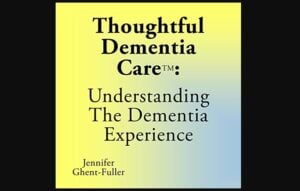Anemia may increase the risk of dementia, according to a study published online in Neurology®, the medical journal of the American Academy of Neurology.
Kristine Yaffe, MD, the study author, is at the University of California – San Francisco and a member of the American Academy of Neurology.
“Anemia is common in the elderly and occurs in up to 23 percent of adults ages 65 and older,” she said.
Stopping Anemia
One way to treat anemia is to increase the amount of oxygen that your blood can carry. This is done by raising the red blood cell count and/or hemoglobin level. (Hemoglobin is the iron-rich protein in red blood cells that carries oxygen to the body.) Below are details on how one can try to achieve this through changes to one’s diet.
The Anemia-Dementia Study
For the study, 2,552 older adults between the ages of 70-79 were tested for anemia and also underwent memory and thinking tests over 11 years. Of those, 393 had anemia at the start of the study. At the end of the study, 445, or about 18 percent of participants, developed dementia.
The research found that people who had anemia at the start of the study had a nearly 41 percent higher risk of developing dementia than those who were not anemic. The link remained after considering other factors, such as age, race, sex and education. Of the 393 people with anemia, 89 people, or 23 percent, developed dementia, compared to 366 of the 2,159 people who did not have anemia, or 17 percent.
“There are several explanations for why anemia may be linked to dementia. For example, anemia may be a marker for poor health in general, or low oxygen levels resulting from anemia may play a role in the connection. Reductions in oxygen to the brain have been shown to reduce memory and thinking abilities and may contribute to damage to neurons,” said Yaffe.
Dietary Changes and Supplements
Low levels of vitamins or iron in the body can cause some types of anemia. These low levels may be due to poor diet or certain diseases or conditions.
To raise your vitamin or iron level, your doctor may ask you to change your diet or take vitamin or iron supplements. Common vitamin supplements are vitamin B12 and folic acid (folate). Vitamin C sometimes is given to help the body absorb iron.
Iron
Your body needs iron to make hemoglobin. Your body can more easily absorb iron from meats than from vegetables or other foods. To treat your anemia, your doctor may suggest eating more meat—especially red meat (such as beef or liver), as well as chicken, turkey, fish, and shellfish.
Nonmeat foods that are good sources of iron include:
- Spinach and other dark green leafy vegetables
- Tofu
- Peas; lentils; white, red, and baked beans; soybeans; and chickpeas
- Dried fruits, such as prunes, raisins, and apricots
- Prune juice
- Iron-fortified cereals and breads
You can look at the Nutrition Facts label on packaged foods to find out how much iron the items contain.
The amount is given as a percentage of the total amount of iron you need every day.
Iron also is available as a supplement. It’s usually combined with multivitamins and other minerals that help your body absorb iron.
Doctors may recommend iron supplements for premature infants and infants who are fed breast milk only or formula that isn’t fortified with iron.
Large amounts of iron can be harmful, so take iron supplements only as your doctor prescribes.
Vitamin B12
Low levels of vitamin B12 can lead to pernicious anemia. This type of anemia often is treated with vitamin B12 supplements.
Good food sources of vitamin B12 include:
- Breakfast cereals with added vitamin B12
- Meats such as beef, liver, poultry, and fish
- Eggs and dairy products (such as milk, yogurt, and cheese)
- Foods fortified with vitamin B12, such as soy-based beverages and vegetarian burgers
Folic Acid
Folic acid (folate) is a form of vitamin B that’s found in foods. Your body needs folic acid to make and maintain new cells. Folic acid also is very important for pregnant women. It helps them avoid anemia and promotes healthy growth of the fetus.
Good sources of folic acid include:
- Bread, pasta, and rice with added folic acid
- Spinach and other dark green leafy vegetables
- Black-eyed peas and dried beans
- Beef liver
- Eggs
- Bananas, oranges, orange juice, and some other fruits and juices
Vitamin C
Vitamin C helps the body absorb iron. Good sources of vitamin C are vegetables and fruits, especially citrus fruits. Citrus fruits include oranges, grapefruits, tangerines, and similar fruits. Fresh and frozen fruits, vegetables, and juices usually have more vitamin C than canned ones.
If you’re taking medicines, ask your doctor or pharmacist whether you can eat grapefruit or drink grapefruit juice. This fruit can affect the strength of a few medicines and how well they work.
Other fruits rich in vitamin C include kiwi fruit, strawberries, and cantaloupes.
Vegetables rich in vitamin C include broccoli, peppers, Brussels sprouts, tomatoes, cabbage, potatoes, and leafy green vegetables like turnip greens and spinach.
SOURCE:
- The American Academy of Neurology
- National Heart, Lung & Blood Institute
- Anemia and risk of dementia in older adults: Findings from the Health ABC study, Chang Hyung Hong, Cherie Falvey, Tamara B. Harris, Eleanor M. Simonsick, Suzanne Satterfield, Luigi Ferrucci, Andrea L. Metti, Kushang V. Patel, Kristine Yaffe, DOI: https://doi.org/10.1212/WNL.0b013e31829e701d
- Hemoglobin and anemia in relation to dementia risk and accompanying changes on brain MRI, Frank J. Wolters, Hazel I. Zonneveld, Silvan Licher, Lotte G.M. Cremers, on behalf of the Heart Brain Connection Collaborative Research Group, M. Kamran Ikram, Peter J. Koudstaal, Meike W. Vernooij, M. Arfan Ikram, DOI: https://doi.org/10.1212/WNL.0000000000008003
MORE INFORMATION:
The study was supported by the National Institute on Aging and the American Health Assistance Foundation.
The American Academy of Neurology, an association of more than 26,000 neurologists and neuroscience professionals, is dedicated to promoting the highest quality patient-centered neurologic care. A neurologist is a doctor with specialized training in diagnosing, treating and managing disorders of the brain and nervous system such as Alzheimer’s disease, stroke, migraine, multiple sclerosis, concussion, Parkinson’s disease and epilepsy.












Interestingly, Dr. Neal Barnard's new book Power Foods for the Brain states that iron is a major cause of Alzheimer's. I think he is wrong. He also promotes a diet that is 3% fat which I think is dangerously low. There is so much confusion regarding brain health, I can see why the average person gives up in frustration.